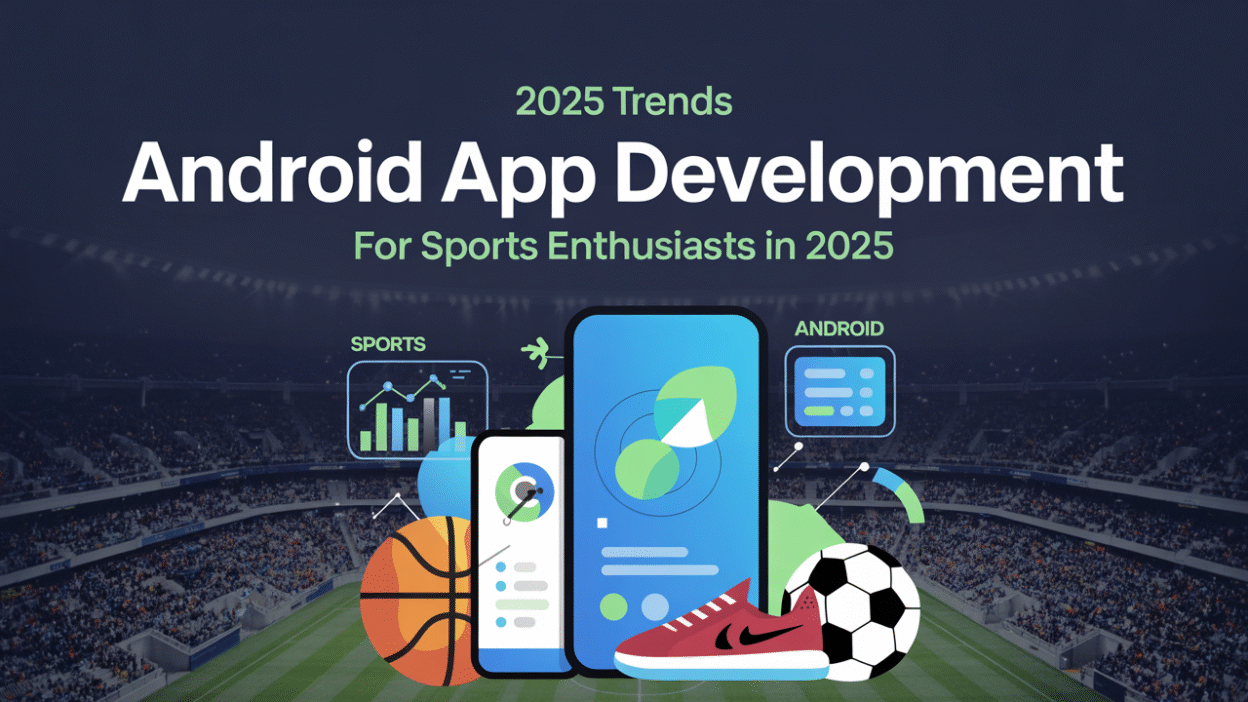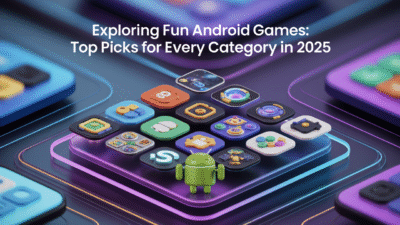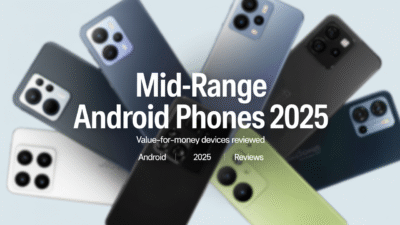In 2025, Android app development continues to evolve rapidly, especially in the realm of sports applications. With millions of sports enthusiasts relying on their smartphones for updates, insights, and interactive experiences, developers are pushing boundaries to meet rising expectations. From real-time data integration to immersive technologies like augmented reality (AR) and artificial intelligence (AI), here’s a look at the most notable Android app development trends shaping the future of sports apps this year.
1. AI-Powered Personalization
Artificial Intelligence is no longer a luxury—it’s a necessity in modern sports apps. In 2025, Android developers are leveraging machine learning algorithms to offer hyper-personalized experiences. Whether it’s suggesting fantasy team lineups based on player performance or predicting match outcomes using historical data, AI ensures users receive tailored content that enhances engagement . These intelligent systems also power chatbots and virtual assistants, providing instant responses to user queries about scores, schedules, and player stats .
2. Integration with AR and VR
Augmented Reality (AR) and Virtual Reality (VR) are transforming how fans interact with sports. Android apps are now incorporating these technologies to create immersive viewing experiences. For example, live streaming apps allow users to watch matches from a 360-degree perspective, while fantasy sports platforms use AR to visualize player positions and strategies in real time . This trend not only boosts user engagement but also opens new monetization opportunities through premium content subscriptions.
3. Real-Time Data and Live Updates
Speed and accuracy are crucial in sports apps, particularly for fantasy sports and live betting platforms. Thanks to advancements in cloud computing and edge computing, Android developers are delivering real-time data feeds with minimal latency. Whether it’s live score updates, player injuries, or weather conditions affecting gameplay, users can access up-to-the-second information that influences their decisions .
4. Gamification and Interactive Features
Gamification remains a powerful tool for retaining users and encouraging deeper interaction. Sports apps in 2025 go beyond basic quizzes and leaderboards—offering dynamic challenges, in-game rewards, and social sharing options. Fantasy sports apps, in particular, integrate gamified elements such as unlockable badges, streak bonuses, and community-based leagues to foster competition and loyalty .
5. Kotlin and Jetpack Compose for Efficient Development
On the technical front, Kotlin has solidified its position as the preferred language for Android app development. Paired with Jetpack Compose, developers are building sleek, responsive user interfaces more efficiently than ever before. This combination enables faster iteration cycles and smoother animations, which are essential for high-performance sports apps that need to handle large volumes of concurrent users during live events .
6. Enhanced Social Integration
Modern sports apps thrive on community interaction. In 2025, Android developers are prioritizing social features that allow users to share predictions, discuss game highlights, and collaborate in fantasy leagues. Integration with major social media platforms and in-app messaging systems helps build a sense of belonging among users, increasing retention and daily active usage .
7. Wearable Device Compatibility
With the growing popularity of smartwatches and fitness trackers, Android sports apps are increasingly optimized for wearable devices. Users can now track heart rate, step count, and even receive push notifications about critical game moments directly on their wrists. This seamless connectivity enhances the overall fan experience by keeping them informed without needing to constantly check their phones .
Conclusion
As we progress through 2025, Android app development for sports enthusiasts continues to break new ground. Developers are combining cutting-edge technologies like AI, AR/VR, and real-time analytics with user-centric design principles to deliver compelling, personalized experiences. Whether you’re a developer looking to enter the market or a sports fan eager to stay ahead of the curve, these trends highlight where the future of mobile sports engagement is headed.



